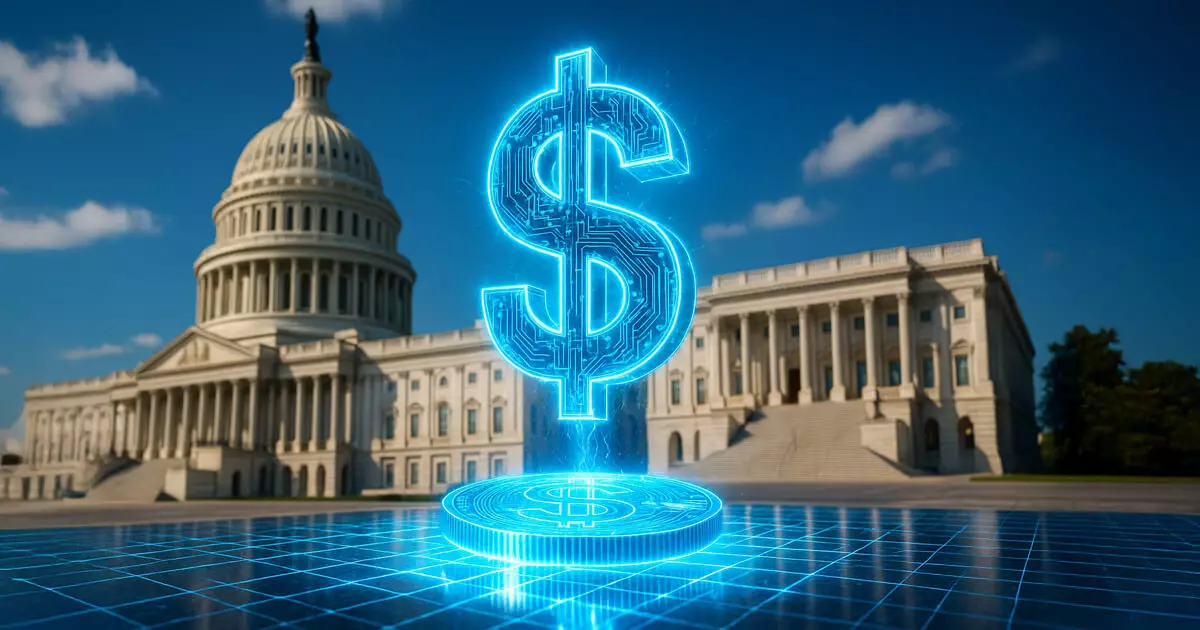The rush to pass the GENIUS stablecoin bill before Memorial Day is undoubtedly a testament to the urgency lawmakers feel regarding digital innovation. However, it’s deeply troubling that such rapid maneuvers often overlook the nuanced complexities of the financial landscape. Senate Majority Leader John Thune’s decision to expedite the process, pushing for a floor vote as early as May 20, serves more as a political chess move than a reasoned legislative strategy. In the polarized atmosphere of modern Washington, it’s essential to recognize that rushing legislation—especially in a domain as rapidly evolving as cryptocurrencies—could lead to more harm than good, fueling further division rather than bridging bipartisan gaps.
This bill, despite its bipartisan endorsement in committee, showcases the inherent friction within various factions. Senate leaders, predominantly Republicans, seem to treat the GENIUS Act as a litmus test for their commitment to innovation, but such symbolism may distract from the substantial debates over regulatory frameworks. As the political winds sway, it’s vital to remember that stablecoin legislation needs to calm fears rather than incite them in a volatile global market.
The Regulatory Balance: Protecting Innovation versus Consumer Risk
Supporters of the GENIUS Act, including Senators Hagerty, Lummis, and Scott, argue for the necessity of embracing digital currencies to maintain the U.S. dollar’s primacy and bring essential clarity to crypto regulations. Yet, is it really prudent to proceed without addressing potential pitfalls? The bill’s provisions for mandating 1:1 backing with cash or Treasuries and requiring monthly attestations are steps in the right direction. However, what about the alarming concerns raised by opposition figures such as Senator Elizabeth Warren and various community banking organizations?
Opponents express legitimate fears that unregulated technological giants could leverage this legislation to their advantage, effectively monopolizing an emerging market. If the bill paves the way for big-tech companies to issue their own stablecoins, the repercussions may destabilize the current banking framework. The transition from a regulated state to a system dominated by digital titans risks creating new vulnerabilities, potentially exposing consumers and the overall financial ecosystem to extremes of volatility.
Identifying Stakeholders: A Messy Web of Interests
Another layer of complexity arises from the diverse array of stakeholders involved. The competitive landscape of stablecoins has prompted a broad coalition of voices beyond the traditional ideological barriers. The rushed sentiment around the GENIUS Act might overlook critical nuances in opinion, particularly within the Democratic party, where divisions expose varying attitudes toward digital finance.
As senators like Kirsten Gillibrand and Mark Warner weigh their options, the exercise of political calculus often overshadows more settled deliberations that prioritize consumer protection. This disconnect illustrates a broader unwillingness to collaborate on crafting a framework that adequately satisfies the needs of both innovation and prudent oversight.
In a landscape where nearly $241 billion in stablecoin capital is at stake—primarily concentrated in two industry titans, Tether and Circle—the stakes are undeniably high. The potential regulatory landscape could tip the financial scales one way or another, affecting businesses, consumers, and the global position of the U.S. dollar.
Bridging Gaps: A Call for Comprehensive Dialogue
As tensions rise in Washington about the GENIUS Act, it becomes increasingly clear that dialogue needs to reign supreme over impulsive legislative action. While the push for a cohesive framework offers a promising glimmer for digital asset policy, the bill represents just a singular perspective in an expansive dialogue.
Instead of viewing the polarized nature as an obstacle, lawmakers have a unique opportunity to pull together disparate voices. By actively engaging with community banks, consumer advocates, and tech innovators, Congress could create a more comprehensive regulatory structure that promotes sustainable growth while reassuring skeptics.
In a world increasingly defined by digital transformation, our legislative focus should not merely be on keeping pace with innovation but rather ensuring that such legislation enhances the stability of someone’s financial future while not compromising security and the fundamental role of state-backed institutions. It’s time for our representatives to commit to uncharted waters without losing sight of our shared fiscal integrity.



















Leave a Reply